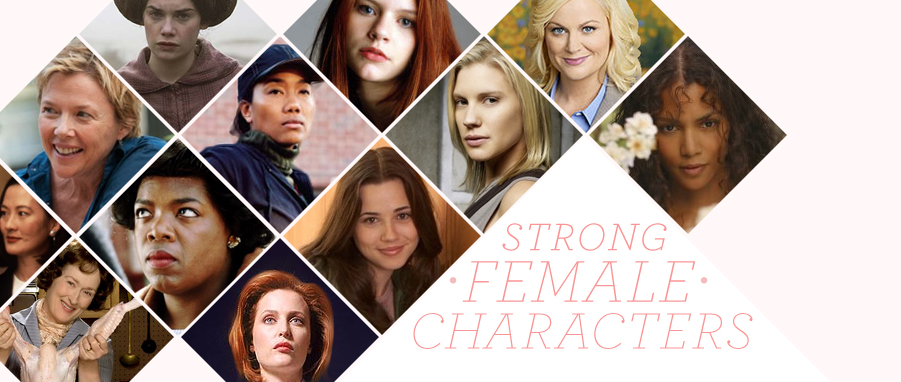 As Lindy West put it best: “Fuckin' Emma Stone. So good at her job and so nice and cute. So funny! So getting to make out with Ryan Gosling that one time. What a dick. JK, I love her. (Dick.)”
As Lindy West put it best: “Fuckin' Emma Stone. So good at her job and so nice and cute. So funny! So getting to make out with Ryan Gosling that one time. What a dick. JK, I love her. (Dick.)”
The first time I watched Superbad on Netflix around 2008, I remember I was simultaneously underwhelmed and diverted by the sophomoric teen-boy humor of Jonah Hill and Michael Cera, but more than that I remember encountering Emma Stone (as Jonah Hill’s much hotter love interest Jules) and thinking, “Who is that awesome girl who I’ve inexplicably never seen before and who I have an irresistible compulsion to hang out with?”
She was funny. She was charming. She had a deep tomboy voice. She was gorgeous. And yet she also looked like a regular person.
Since Superbad, Stone has pretty much carried all of that currency straight to the bank and general superstardom. And while it’s easy for starlets who enter the Hollywood machine with trace amounts of spunky individuality to get assembly-lined, streamlined, and de-interesting-ized, she’s come through it all remarkably well.
The other day, three years late, I finally watched Easy A, which was Stone’s big breakout leading-lady role. The movie was fun, if a bit uneven, but again, Stone basically made the whole thing. And again, I felt that odd compulsion where I wanted her to be my best friend at the same time that I wanted to be half or one-fifth as cool as her.
The tomboy/best friend/still irrepressibly talented and gorgeous shtick is big in young female Hollywood right now. Jennifer Lawrence is currently riding a wave of adulation with her self-deprecating, down-to-earth manner and her cool-girl vibe. She’s been nominated for two Academy Awards, she just won Best Actress, she’s played fantasy characters like Mystique and Katniss, and she’s starred romantically opposite the likes of Bradley Cooper and Michael Fassbender, and yet we still feel like we kind of know her. Why?
I’m just gonna take a moment to say that I love Emma Stone. I love Jennifer Lawrence. I love Mila Kunis, who has also recently re-launched her cool-girl brand (though I’m kinda like, Ashton Kutcher? Eh.) But I also love Anne Hathaway, who is riding a media wave going in the exact opposite direction, mostly because of what was deemed a disingenuous, cloying Oscar acceptance speech. Why?
Anne Hathaway is gorgeous, but relatable. She’s funny (watch how amazing she is hosting Saturday Night Live). She’s incredibly talented. She’s hard-working. And she really, really seems like a nice person. So sometimes she comes off like that overly bubbly, overly earnest girl at your high school who was always running for and/or organizing things. What’s so bad about that?
To me, it seems like there should be room for admiration and affection for multiple types of Hollywood personalities. You don’t have to like them all. To use an over-used cliché, if these girls were my best friends and we were on Sex and the City, Jennifer would be Samantha and Emma would be Miranda and Anne would be Charlotte, who can be annoying sometimes but we still love her and value her as part of the group.
But this whole anti-Hathaway movement feels incredibly mean-spirited, spiteful, and very, very high school. It feels like resentment of too much success; it feels catty. Anne has become a lightning rod for people’s general, often unfocused dislike of the rich and the successful in Hollywood, a transference for personal problems and shortcomings, a target for some kind of chorus of real-life comments sections, and, as this New Yorker blog points out, an embodiment of the "happy girl" who doesn't know her place. Think about this: how many male actors have engendered a similar reaction when their Oscar speech wasn’t pitch-perfect? I mean, why was Ben Affleck so surprised and emotional that he won an Oscar for Argo—he’s won before! What a phony. Not to mention the fact that he let slip an uncomfortable comment on the “work” he has to put into his marriage to Jennifer Garner. Yet no one’s attacking him.
I’m over it. I’m so over it. Anne Hathaway doesn’t have to be universally liked, the way Stone, Lawrence, Kunis seem to be. But she certainly doesn’t deserve to be universally reviled. When are we going to stop vindictively policing the behavior of women in the public eye—or at the bare minimum, policing members of both gender to the same degree? Why can't we all be friends?

